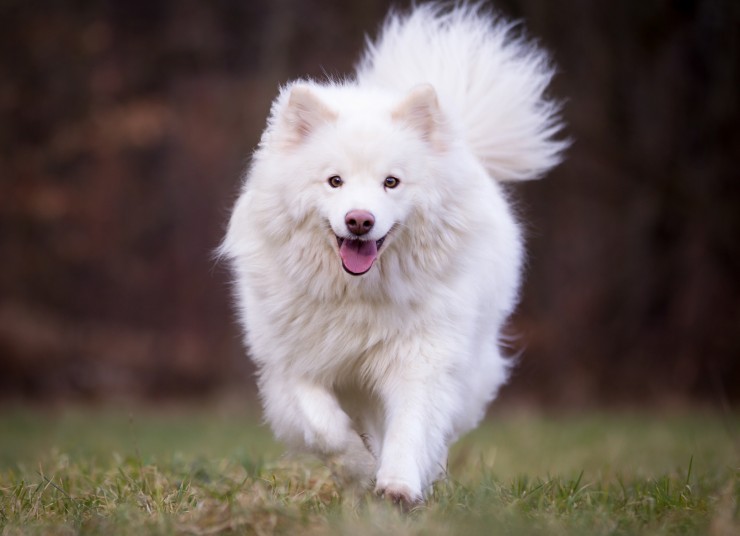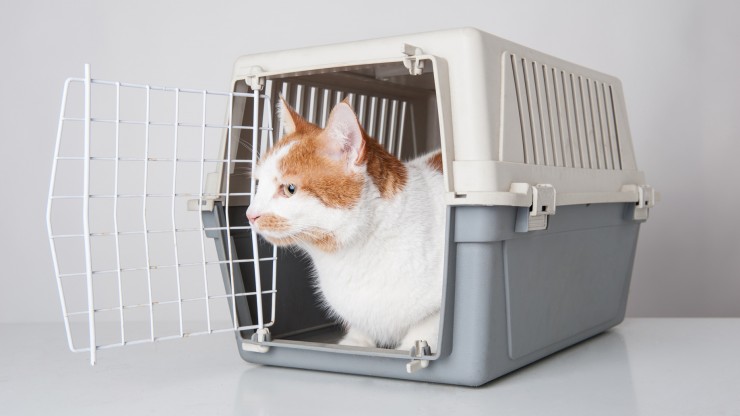For several years, our French Bulldog, Iris, had had a slightly enlarged area on her throat. We had asked our former veterinarian about this several times, and even asked directly if she might not have an infection of some kind. However, we were assured that it was nothing more than a fat deposit (Iris is a bit chunky). We finally accepted this and basically forgot about it as it did not seem to be bothering her. What we didn't suspect was that this was actually a time bomb.
Last January, we took both Iris and Pip into a local vaccination clinic for their rabies shots. We live in an extremely cold climate and don't like to take the dogs too far when it's bitterly cold out, which it was. Both dogs received their shots, but over the next few days both had mild symptoms develop from the shot: lethargy, slightly elevated temperature, and lack of appetite. They both seemed to have recovered by the end of the weekend, so we thought the worst was over; but how wrong we were.
Two days later, Iris woke up in the morning with a swelling on her throat that was literally the size of a large orange. It was hard as a rock. She was very ill at this point so I called a veterinarian we had used years before with our first French Bulldogs. When I explained what had happened, the receptionist didn't even check with the vet, but told me to bring her right in.
By this time, Iris was having difficulty breathing as this monstrous growth was pressing on her windpipe. Our vet took one look, took a sample from the swelling and admitted Iris to the hospital immediately. They scheduled surgery for that afternoon.
When I called later to see how Iris was doing, the vet told me they had drained out 2 cups of pus and that she was on several medications as well as hydration therapy. At this point, it was uncertain whether Iris would live, especially as she was nearly 9 years old at the time. Blood work revealed a dangerous level of kidney toxins, 1500 times normal.
Our vet tried a few therapies over the next few days and had sent out a sample of the pus for testing at a lab. As it turned out, what had been diagnosed repeatedly as a fat deposit was actually a strep infection - this was the time bomb. The doctor consulted with some of the top veterinarians in the country for the best approach to treatment, and Iris gradually began to rally.
Because Iris was obviously so dependent upon human contact, the vet took her home with her at night so that she wouldn't be lonely, and got up every few hours to check on her and give her some attention. I believe this was as instrumental in the dog's recovery as the medical treatment.
As it turned out, the abscess was an anaphylactic allergic reaction to the rabies vaccine. The vaccine had actually shut down Iris' immune system completely. This allowed the strep infection to explode and threaten her life.
Iris spent four days and nights in the hospital, or at the vet's home, until she was finally well enough to go home with us. When I went in to pick her up I saw that she was extremely droopy and uninterested in her surroundings, so we were anxious to get her home with us again, along with a bag full of medications and treatment that she needed. She remained like this until we were approximately 5 miles from home when she instantly perked up and stood up on my lap; somehow she knew she was going home.
Over the next few weeks, my husband, son, and myself had to administer subcutaneous fluids twice a day, express liquid from the incision site 3 times a day, give hot soaks to the site, give her antibiotic injections, and provide a non-prescription stomach settler. It was a long process, but she gradually gained strength, began eating regularly, and was able to walk on her own again.
It is obvious that rabies vaccine is necessary - this is a deadly disease for which there is no cure. However, any pet owner should probably take a few precautions before having their dog vaccinated. They should have a complete exam to eliminate the possibility of an infection or other health problem, check with your vet to be sure that they are using a vaccine that will be less likely to cause an allergic reaction. Several different companies make this vaccine, so it is definitely worthwhile to pay a few extra dollars for the safer vaccine. If your dog has previously been vaccinated against rabies, ask the vet to do a titer blood test to see whether antibodies to rabies are still present. If your dog is protected, you may want to skip the shot until another year goes by.
Iris did make a full recovery, but it was a long process, and costly. She never complained once during the whole event. I credit our veterinarian for saving her life.

 Essential Tips for Taking Good Care of Our Pets
Essential Tips for Taking Good Care of Our Pets
Essential Tips for Taking Good Care of Our Pets
Essential Tips for Taking Good Care of Our Pets
 Is A Finnish Lapphund The Right Dog For You?
Is A Finnish Lapp
Is A Finnish Lapphund The Right Dog For You?
Is A Finnish Lapp
 Seven Common Mistakes Cat Owners Make When Transporting Their Cats
Seven Common Mist
Seven Common Mistakes Cat Owners Make When Transporting Their Cats
Seven Common Mist
 Chicken houses with runs keeps your chicken happy
Chicken houses with runs keeps your chicken happy
Chicken houses with runs keeps your chicken happy
Chicken houses with runs keeps your chicken happy
 Canine Coat Growth And Shedding Explained
Canine Coat Growt
Canine Coat Growth And Shedding Explained
Canine Coat Growt